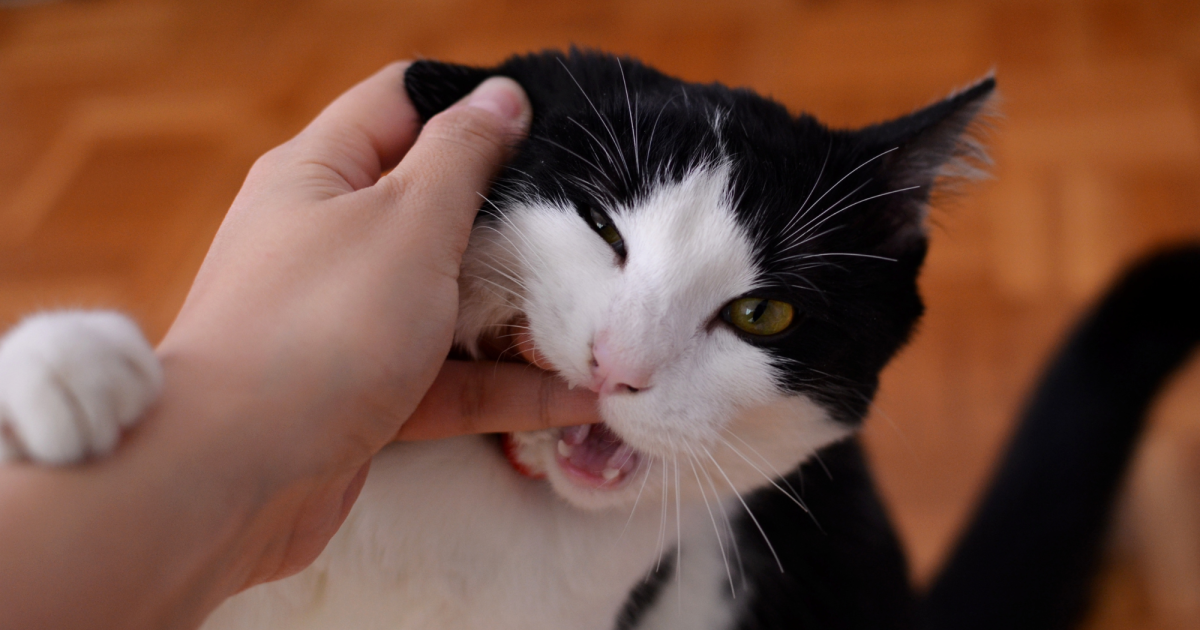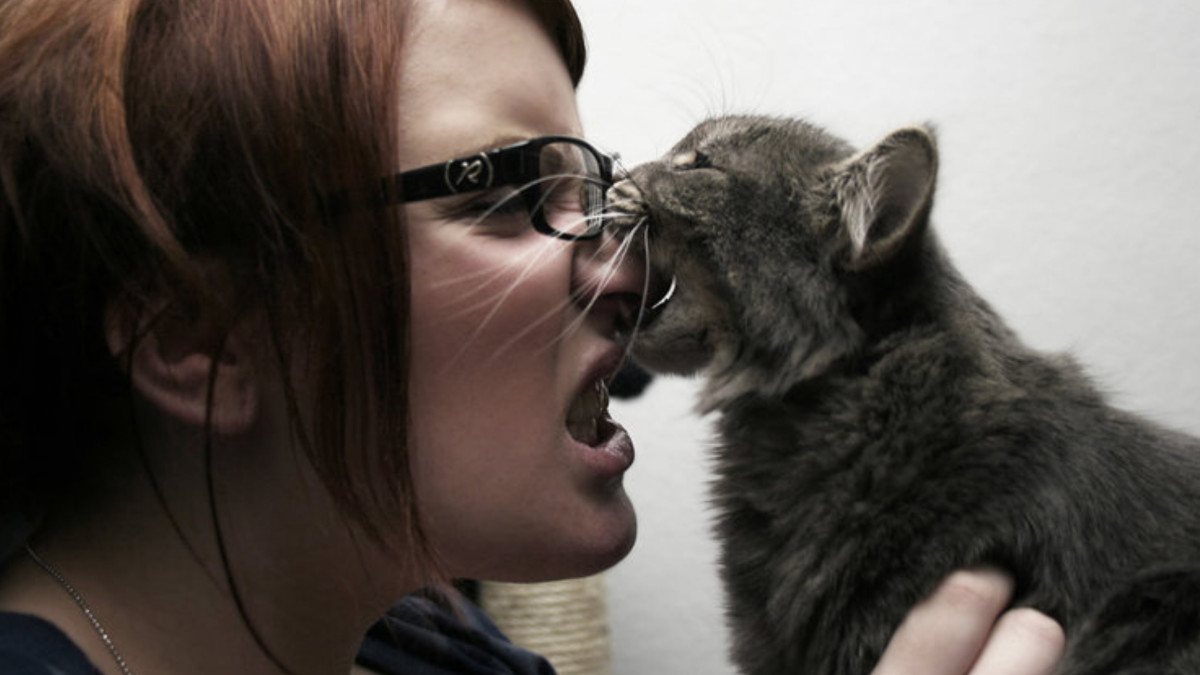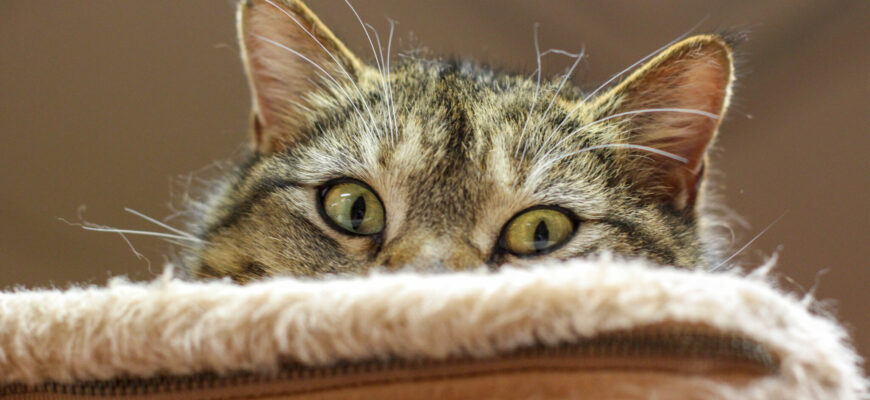Have you ever felt a sudden swipe or pounce from your cat just as you walk by? It’s confusing and even a little frustrating when your furry friend turns on you out of the blue.
You might wonder, “Why does my cat attack me when I walk past? ” Understanding this behavior can change the way you connect with your cat. Keep reading, because uncovering the reasons behind these surprise attacks will help you build a stronger, calmer bond with your pet—making your home a more peaceful place for both of you.

Credit: www.reddit.com
Common Triggers For Cat Attacks
Understanding why your cat attacks when you walk past can feel puzzling. Identifying the common triggers helps you handle these moments better and reduce unexpected swipes. Let’s look at some typical reasons behind this behavior and how you can spot them.
Sudden Movements
Cats are naturally alert to quick motions. When you walk past too fast or make a sudden turn, your cat might react as if it’s a threat or prey. This reaction isn’t about you personally; it’s their instinct kicking in.
Try moving calmly and predictably near your cat. Notice if slowing down reduces their aggressive bursts. Have you ever seen your cat tense up just before you made a quick step? That’s a clear signal they’re sensitive to sudden moves.
Territorial Behavior
Your cat sees your home as their space, and sometimes your movement within it can trigger territorial instincts. Walking past might feel like invading their “hunting ground,” especially if they are resting or focused on something.
Providing your cat with safe spots and clear boundaries can help. You might notice your cat attacking more near their favorite resting place. How do you think your cat would react if you calmly approached and gave them space instead?
Overstimulation
Too much petting or play can overwhelm your cat, leading to sudden attacks when you least expect it. This happens because their threshold for touch or excitement varies and can be easily crossed.
Watch for signs like tail flicking or ears flattening before an attack. Adjusting your interactions based on these signals can keep things calm. Have you tried stopping before your cat reaches that “overstimulated” point?
Cat Communication Signals
Cats use many signals to communicate their feelings and intentions. Understanding these signals helps explain why your cat might attack as you walk by. These signs are often subtle and easy to miss.
Cat communication happens mostly through body language and vocal sounds. Recognizing these cues allows you to respond appropriately. It also helps build a stronger bond with your pet.
Body Language To Watch
- Tail position: A twitching or lashing tail shows irritation or excitement.
- Ears: Flattened or sideways ears mean your cat feels threatened or annoyed.
- Eyes: Narrowed or staring eyes can signal aggression or fear.
- Posture: A stiff or crouched body indicates readiness to attack or defend.
- Paw movements: Swatting or tapping paws warn you to stay back.
Watching these signs helps you understand your cat’s mood. It may explain sudden attacks during simple actions like walking past.
Vocal Cues
- Hissing: A clear warning of discomfort or fear.
- Growling: Shows your cat feels threatened or angry.
- Chirping or chattering: Often expresses frustration or excitement.
- Meowing: Can vary from a greeting to a demand for attention.
- Purring: Usually means contentment but can also signal stress in some cases.
Listening to these sounds gives clues about your cat’s feelings. It helps you avoid triggering an attack by recognizing early warnings.
Health Issues Behind Aggression
Understanding the health issues behind your cat’s sudden aggression can change how you approach their behavior. Sometimes, what looks like a random attack may actually be your cat trying to tell you something important about their well-being. Paying attention to health-related causes can help you respond with care rather than frustration.
Pain And Discomfort
Cats often hide pain, but aggression is a common way they express it. If your cat lashes out when you walk past, they might be protecting a sore spot. Imagine accidentally stepping on a bruise; you’d react quickly to avoid more pain.
Look for subtle signs like limping, reluctance to be touched, or changes in grooming habits. These clues can point to injuries or conditions like arthritis. Have you noticed if your cat avoids jumping or seems stiff? These could be red flags.
Consulting a vet for a thorough checkup can uncover hidden issues. Treating pain early can ease your cat’s aggression and improve your bond.
Neurological Problems
Neurological issues can also cause sudden aggression in cats. Conditions affecting the brain or nervous system might change how your cat reacts to stimuli, including you walking by.
Seizures, brain tumors, or infections can make cats unpredictable and defensive. If your cat’s aggression seems out of character or is accompanied by confusion or disorientation, consider a neurological cause.
Have you noticed any head tilts, unusual eye movements, or balance problems? These signs warrant a prompt veterinary evaluation. Early diagnosis can lead to treatments that reduce aggressive episodes and improve quality of life.
Environmental Factors
Environmental factors play a big role in why your cat might attack you as you walk past. Your cat’s surroundings affect its mood and behavior more than you might expect. Understanding these influences can help you create a calmer space for both of you.
Stress And Anxiety
Cats are sensitive to changes in their environment. New furniture, loud noises, or even unfamiliar visitors can make them anxious. When your cat feels stressed, it might lash out suddenly as a way to protect itself.
Think about how your cat reacts after a thunderstorm or when you bring home a new pet. These events can increase anxiety, making your cat more jumpy and prone to attack. Have you noticed any patterns in your cat’s behavior related to stressful moments?
To reduce stress, try keeping a consistent daily routine. Offer quiet spaces where your cat can retreat and feel safe. Using calming sprays or diffusers with pheromones can also help ease anxiety and reduce aggressive reactions.
Lack Of Play And Stimulation
Boredom can turn your cat’s energy into aggressive behavior. Cats need mental and physical activity to stay happy. If they don’t get enough playtime, they might attack out of frustration or to get your attention.
Reflect on your daily interactions—does your cat have enough toys or time to chase and pounce? Sometimes, a quick game with a feather wand before you leave or when you come home can prevent surprise attacks. What types of play does your cat seem to enjoy most?
Adding puzzle feeders, climbing trees, or interactive toys can keep your cat engaged. Regular play sessions also strengthen your bond and help your cat release energy in a positive way. Could a few extra minutes of playtime change how your cat behaves around you?
How To Prevent Attacks
Preventing your cat from attacking as you walk past starts with understanding their behavior. Cats often react out of fear, surprise, or playfulness. Creating a calm environment reduces triggers that make your cat feel threatened. Training your cat positively encourages better reactions during daily interactions. Keeping your cat active and entertained helps release built-up energy that might otherwise turn into sudden attacks.
Creating Safe Spaces
Provide quiet spots where your cat can relax alone. Use soft bedding and hideaways like boxes or cat trees. These areas help your cat feel secure and less anxious. Avoid crowding these spaces with loud noises or sudden movements. A safe place reduces stress and lowers the chance of attacks.
Positive Reinforcement Techniques
Reward calm behavior with treats or gentle petting. Use a soft voice to praise your cat when it stays calm near you. Avoid punishment; it makes fear and aggression worse. Teach your cat to associate your presence with good things. This creates trust and lessens aggressive responses.
Regular Play Sessions
Schedule daily playtimes to burn off your cat’s energy. Use toys like feather wands or laser pointers to engage them. Play helps your cat release energy in a healthy way. It also strengthens your bond and reduces boredom. A tired cat is less likely to attack without warning.

Credit: pethelpful.com
When To Seek Professional Help
Understanding when to seek professional help is crucial if your cat attacks you as you walk past. Sometimes, these behaviors signal deeper issues that need expert attention. Ignoring warning signs can lead to more stress for both you and your pet.
Behavioral Specialists
Behavioral specialists can help identify triggers behind your cat’s sudden attacks. They observe your cat’s body language and environment to find root causes. If your cat’s aggression seems linked to anxiety or territorial behavior, a specialist can create a tailored plan to manage it.
Have you noticed if your cat reacts differently in certain rooms or around specific people? A professional can guide you on how to change those situations to reduce attacks. They often suggest training techniques or environmental adjustments to improve your cat’s comfort.
Veterinary Consultation
Sometimes aggression is caused by pain or medical issues. A visit to the vet can rule out health problems like arthritis or infections that make your cat irritable. You might be surprised how often a hidden illness triggers unexpected behavior.
If your cat’s attacks started suddenly or worsened over time, don’t delay a veterinary checkup. The vet can also advise on medication or supplements to ease discomfort or stress. Your cat’s health directly affects its behavior, so addressing physical problems is key.

Credit: pethelpful.com
Frequently Asked Questions
Why Does My Cat Attack Me When I Walk By?
Cats may attack when you walk by due to playfulness or territorial instincts. They might see your movement as a trigger to pounce or seek attention.
Is My Cat Aggressive If It Attacks While Walking Past?
Not necessarily. Cats often attack out of excitement or curiosity. It doesn’t always mean aggression; it can be a form of play or communication.
How Can I Stop My Cat From Attacking Me Suddenly?
Provide regular playtime and toys to redirect energy. Avoid sudden movements and give your cat attention to reduce surprise attacks.
Does My Cat Attack Because It Is Scared?
Yes, fear can cause cats to react defensively. Sudden movements or unfamiliar sounds may trigger their instinct to attack for protection.
Conclusion
Understanding your cat’s behavior can improve your relationship. Cats sometimes attack due to playfulness or fear. Observing their body language helps anticipate their actions. Offer toys to redirect their energy. Create a calm environment to reduce stress. Consistent routines make them feel secure.
Consult a vet if aggressive behavior persists. Building trust takes time and patience. Enjoy the journey with your feline friend. Their affection is worth the effort. Appreciate their unique personality and quirks. Your bond will grow stronger with understanding.

